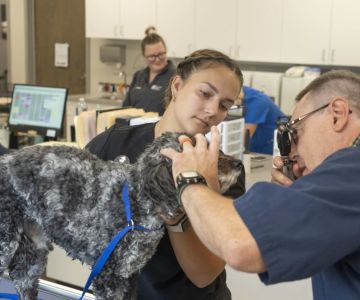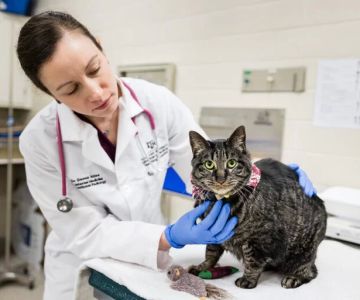- 1-Understanding-the-Veterinarian-Education-Path
- 2-Pre-Veterinary-Undergraduate-Education
- 3-Veterinary-School-Duration-and-Curriculum
- 4-Postgraduate-Training-and-Licensing-Requirements
- 5-Real-Life-Experience-from-Veterinary-Students
- 6-Challenges-and-Rewards-of-Veterinary-Education
- 7-Planning-Your-Veterinary-Career-and-Education
1. Understanding the Veterinarian Education Path
Becoming a veterinarian is a commitment to extensive education and training. The question how many years of school for veterinarian involves understanding the entire process, from undergraduate studies through veterinary school and beyond. This path equips future vets with the knowledge and skills necessary to care for animal health across various species.
2. Pre-Veterinary Undergraduate Education
The journey typically starts with a 4-year undergraduate degree focusing on sciences such as biology, chemistry, and animal science. This foundation is crucial for veterinary school admission, as it prepares students for the rigorous coursework ahead. Many aspiring veterinarians use this period to gain relevant experience through internships or volunteering at clinics.
3. Veterinary School Duration and Curriculum
Veterinary school itself generally lasts 4 years. The curriculum combines classroom learning, lab work, and clinical rotations. Students study anatomy, physiology, pharmacology, pathology, and surgery. Hands-on clinical experience is vital, allowing students to work with animals under supervision. The intense workload explains why vet school is known for its challenge and prestige.
4. Postgraduate Training and Licensing Requirements
After graduation, veterinarians must pass the North American Veterinary Licensing Examination (NAVLE) or equivalent in other countries. Some choose to pursue internships or residencies, which add 1-3 years of specialized training. Licensing requirements vary by region but always involve proving competency to ensure public and animal safety.
5. Real-Life Experience from Veterinary Students
Jane, a recent graduate, shares her experience: “The journey was long and intense, but every year built on my passion for animal care. The clinical rotations were especially rewarding, giving me confidence to practice.” Stories like Jane’s illustrate the dedication and growth involved in veterinary education.
6. Challenges and Rewards of Veterinary Education
While the educational path can be demanding, the rewards are significant. Vets enjoy diverse career opportunities and the fulfillment of improving animal health and welfare. Balancing study, clinical practice, and personal life requires discipline, but the result is a respected and meaningful profession.
7. Planning Your Veterinary Career and Education
Understanding how many years of school for veterinarian helps in realistic career planning. Prospective vets should focus on academic excellence, gain practical experience early, and seek mentorship. Resources and support from veterinary schools and organizations can make this challenging path more navigable.
For comprehensive guidance, educational tools, and veterinary products to support your journey, visit Hidden Brook Veterinary. Their expert resources empower aspiring vets every step of the way.











